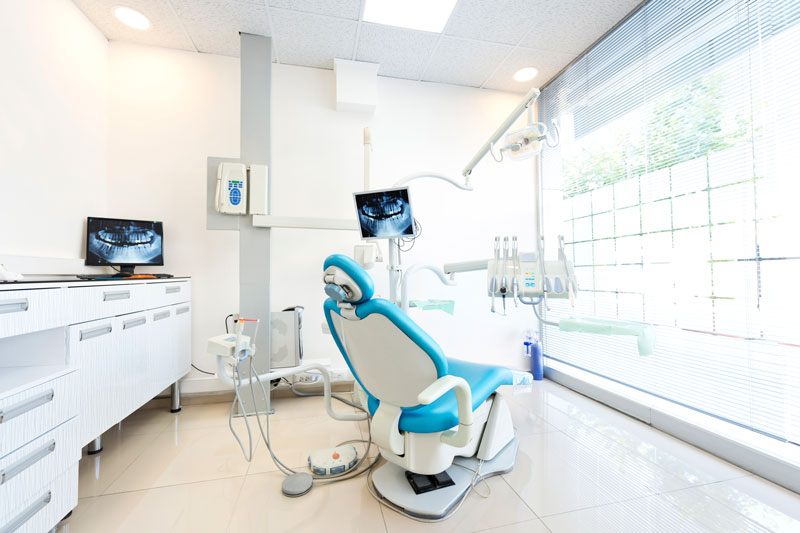Recognizing the Common Signs of Dental Decay

Dental decay is a common oral health issue that, if left untreated, can lead to more significant problems. As patients of Spokane Dental, it's essential to be vigilant and aware of the common signs that may mean you have a cavity. By identifying these signs early on, we can intervene early, preserving your oral health and maintaining a healthy smile. In this blog post, we'll delve into the key indicators of dental decay, empowering you to take proactive steps toward optimal oral well-being.
1. Toothache or Discomfort:
One of the most apparent signs of dental decay is persistent toothache or discomfort. If you experience sharp or throbbing pain when biting down or consuming hot or cold foods, it may indicate a problem. This discomfort can range from mild to severe, so it's crucial not to ignore any persistent or worsening pain.
2. Sensitivity to Hot and Cold:
Heightened sensitivity to hot or cold temperatures is a common early sign of dental decay. If you find yourself wincing when sipping hot coffee or eating ice cream, it could be an indication that the enamel (outer layer of the tooth) is compromised.
3. Visible Holes or Pits:
As dental decay progresses, it can create visible changes in the affected tooth. Look out for the emergence of holes, pits, or dark spots on the surface of your teeth. These are indicative of cavities and signal the need for professional dental attention. Regular check-ups at Spokane Dental can help identify and address these early signs before they become more extensive issues.
4. Discoloration of the Tooth:
Changes in tooth color can be a red flag for dental decay or damage to the nerve inside the tooth as well. If you notice white, brown, or black spots on your teeth, it's essential to have them evaluated by your dentist at Spokane Dental. Discoloration may be a sign of enamel erosion and addressing it early can prevent further damage.
5. Bad Breath (Halitosis):
Persistent bad breath that doesn't improve with regular oral hygiene practices may be linked to dental decay. Decaying teeth can harbor bacteria that contribute to foul breath. If you're concerned about chronic bad breath, it's crucial to consult with Dr. Smith to rule out any underlying dental issues.
6. Unpleasant Taste in the Mouth:
An unpleasant taste in the mouth, especially when eating or drinking, can be associated with dental decay. If you notice a lingering unpleasant taste, it's advisable to schedule a dental check-up at Spokane Dental for a comprehensive examination.
7. Swollen or Bleeding Gums:
While gum issues are commonly associated with conditions like gingivitis or periodontal disease, they can also be linked to dental decay. Swollen or bleeding gums, especially around a specific tooth, may indicate decay has reached the roots. Timely intervention is crucial to prevent the spread of infection and protect the supporting structures of the tooth.
8. Changes in Tooth Texture:
Run your tongue along the surface of your teeth. If you notice any roughness or changes in texture, it could be a sign of dental decay. Decay can create a porous surface on the tooth, altering its feel. Regular dental check-ups at Spokane Dental include examinations of tooth surfaces to detect these subtle changes.
9. Changes in the Fit of Dental Appliances:
If you wear dental appliances such as dentures or bridges, pay attention to any changes in their fit. Decay can alter the structure of the underlying teeth, affecting the fit of dental appliances. If you notice discomfort, changes in stability, or any irregularities in how your dental appliances fit, consult your dentist promptly.
10. X-Ray Evidence:
Regular dental X-rays are a valuable tool for detecting dental decay that may not be immediately visible. Spokane Dental utilizes advanced diagnostic tools to identify decay in its early stages, allowing for timely and targeted treatment. X-rays can reveal decay between teeth, beneath fillings, and even under the gums.
If you notice any of these indicators, don't hesitate to reach out to Spokane Dental for a thorough examination and personalized care. Early intervention is key to preventing the progression of decay and maintaining a healthy, beautiful smile. Remember, regular dental check-ups are your proactive defense against dental issues, ensuring that you can enjoy optimal oral health for years to come. If you are experiencing any of these symptoms or are due for a dental checkup, call (509) 822-5614 to schedule today.

